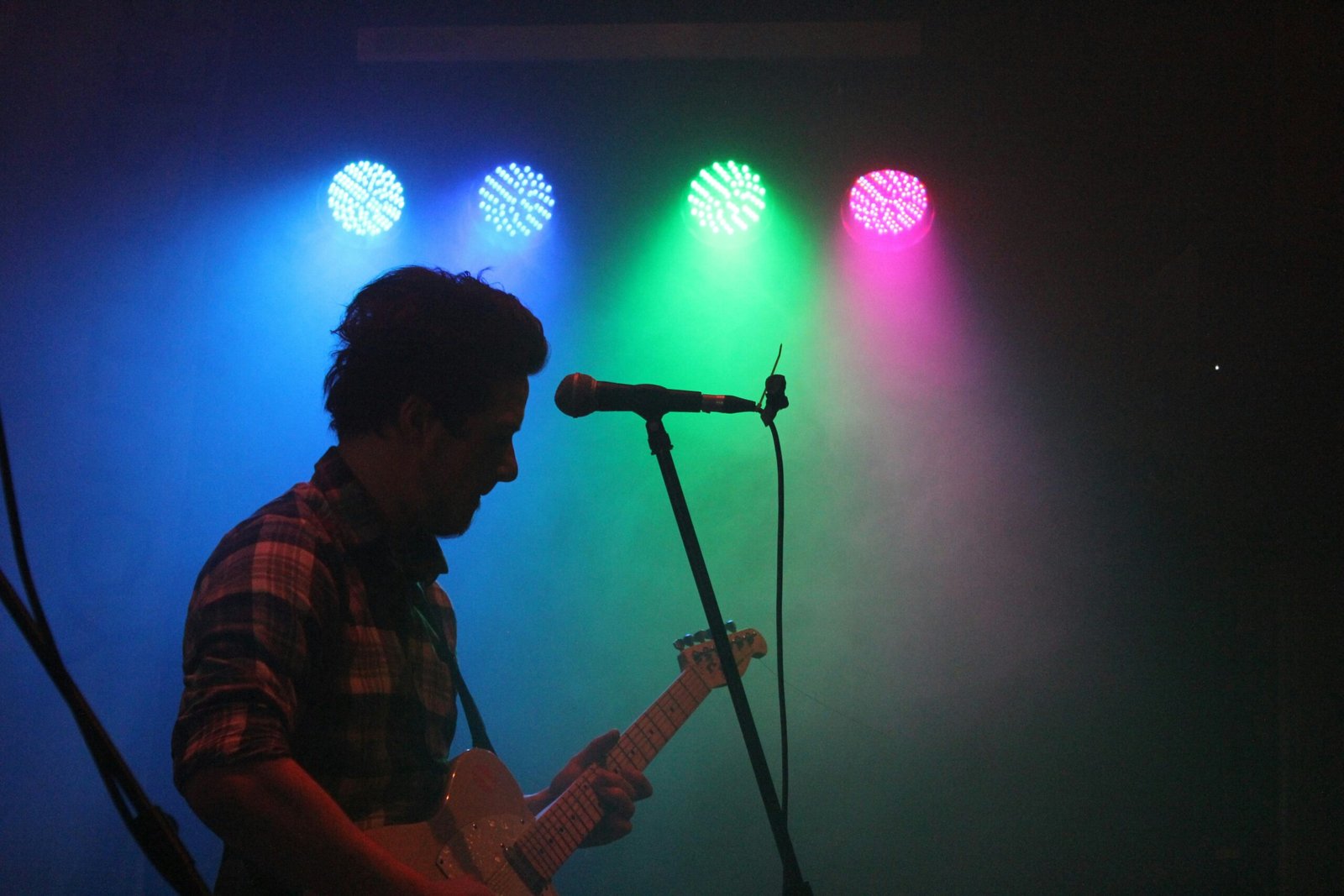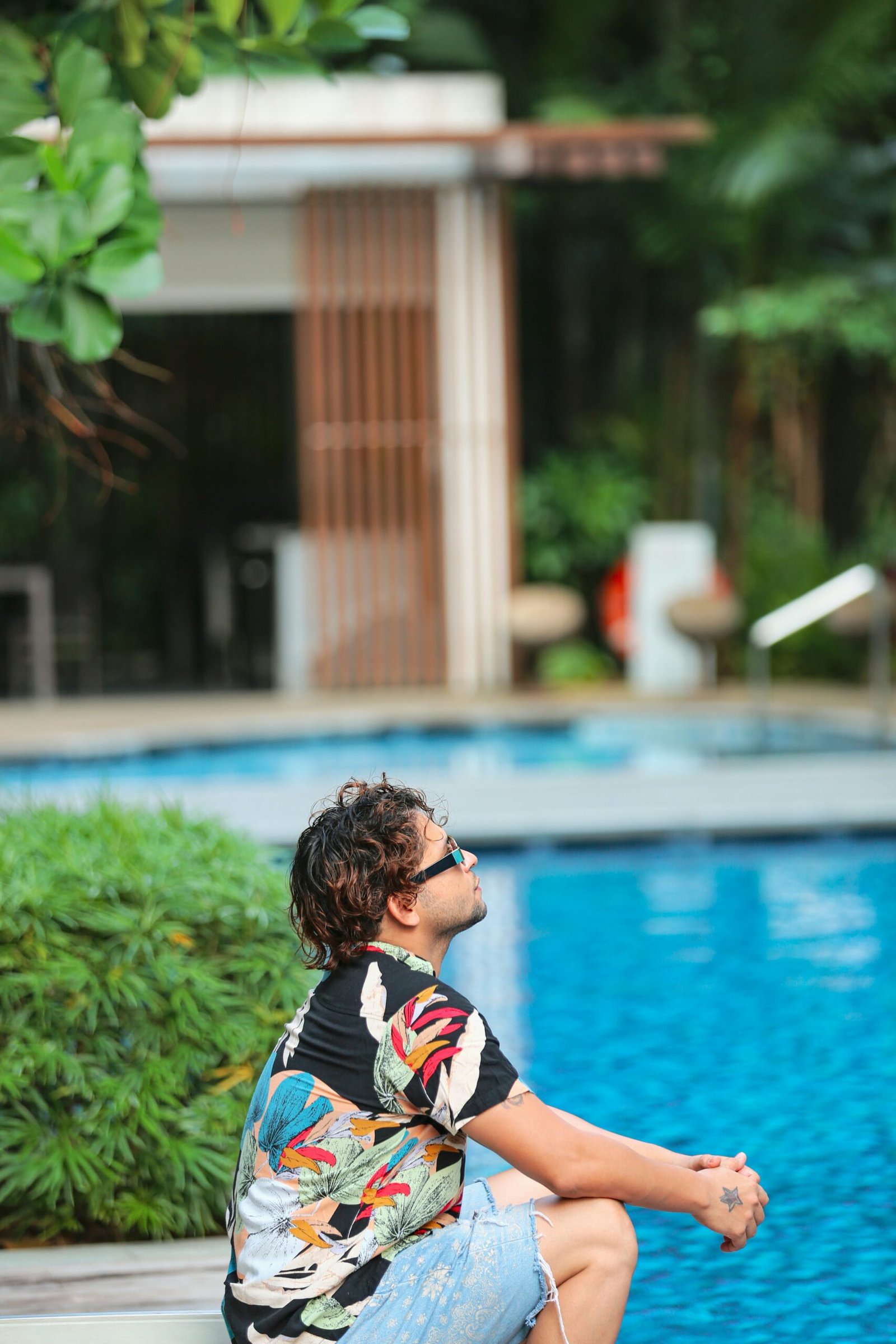Introduction to the Challenge of Clean Water Access
Access to clean water remains one of the critical challenges facing communities worldwide, particularly in developing nations. According to the World Health Organization (WHO), approximately 2 billion people currently live without access to safely managed drinking water services. This lack of reliable water sources severely hampers community development, public health, and economic progress. Water scarcity not only affects day-to-day life but also exacerbates issues such as food insecurity, disease spread, and gender inequality, with women often bearing the brunt of water collection duties.
In many regions, individuals must travel considerable distances to fetch water, reducing the time available for education and employment. In rural areas of sub-Saharan Africa, for instance, women and girls can spend up to six hours each day collecting water from distant sources. This reality diminishes their opportunities for school and economic advancement, illustrating the multi-faceted impact of inadequate access to clean water.
Faced with these staggering statistics, innovators like Youssef, a young engineer from Tunisia, are stepping up to make a difference. Youssef’s work is driven by a passionate commitment to developing sustainable and innovative solutions aimed at providing reliable access to clean water. He recognizes that technological advancements and community engagement are vital in creating effective water solutions, especially in regions plagued by scarcity. Youssef’s journey reflects the growing recognition among engineers and innovators that improving clean water access is essential not only for health outcomes but also for empowering communities to thrive.
Through his initiatives, Youssef is determined to confront the global clean water crisis head-on, highlighting the urgent need for action and collaboration. As we explore this topic further, it becomes apparent that addressing water access challenges requires compassion, innovation, and a collective effort to improve the lives of millions.
Meet Youssef: A Young Engineer’s Vision
Youssef is a talented young engineer whose passion for sustainability and community development has shaped his career aspirations. Born and raised in a region where clean water access remains a challenge, Youssef’s formative experiences ignited his interest in engineering as a tool for social good. Witnessing firsthand the struggles faced by his community due to inadequate water supply motivated him to pursue a path focused on creating innovative solutions for clean water access.
Youssef’s educational journey began at a local technical institute where he excelled in subjects such as environmental science and resource management. Recognizing the growing need for expertise in sustainable engineering, he pursued a degree in civil engineering at a prestigious university. His academic experiences were enriched by participating in various projects that addressed water quality issues, further solidifying his commitment to the field. Youssef’s professors recognized his potential and encouraged him to explore cutting-edge techniques in water purification and conservation, paving the way for his future endeavors.
In addition to his formal education, Youssef actively engaged with various community organizations focused on improving access to clean water. He volunteered in projects that aimed to build sustainable water infrastructure, promoting awareness about the importance of water conservation. These experiences allowed him to connect with local leaders and other passionate individuals, amplifying his resolve to make a positive impact on his community’s water challenges. Youssef envisions a future where every individual has reliable access to clean water, and he is determined to play a significant role in turning this vision into reality. Through innovation and collaboration, Youssef strives to inspire others and drive change in the realm of water accessibility.
The Conference: A Catalyst for Change
The conference served as a pivotal moment in Youssef’s journey toward innovative clean water solutions. Held at a prominent venue, this event attracted thought leaders and practitioners from diverse backgrounds, all dedicated to sharing solutions and ideas for sustainable water access. As Youssef entered the bustling auditorium, he was enveloped in an atmosphere brimming with anticipation and collaboration. The event saw participants engage in lively discussions, workshops, and presentations focusing on various aspects of water sustainability. Prominent experts in the field presented transformative ideas that delved into technology, community engagement, and policy reforms, all directed toward improving clean water access globally.
One of the key topics that resonated deeply with Youssef was the importance of community-driven water projects. Presenters highlighted case studies where local involvement not only enhanced the effectiveness of water solutions but also ensured sustainability. Youssef felt a sense of urgency as he listened intently to the challenges faced by countless communities lacking clean water resources. The myriad of innovative approaches discussed at the conference ignited a spark of inspiration within him, shining a light on potential pathways to tackling these pressing issues.
It was during a networking session that Youssef met Maria, a fellow participant whose expertise in sustainable development aligned with his own aspirations. Their conversation flowed easily, fueled by a shared passion for ensuring clean water accessibility. Maria’s insights on utilizing technology to monitor water quality and accessibility left Youssef feeling invigorated and eager to explore potential collaborations. As the day unfolded, it became increasingly clear that the conference provided not just a platform for knowledge sharing, but also a catalyst for impactful partnerships aimed at innovating clean water solutions.
Introducing Maria: Expertise in Water Resource Management
Maria, a distinguished water resource expert from Canada, has dedicated over a decade of her career to the sustainable management of water resources across various regions. Her extensive expertise encompasses a myriad of projects aimed at improving access to clean water, particularly in underserved communities. With a Master’s degree in Water Resource Engineering, Maria has cultivated a nuanced understanding of the intricacies involved in developing sustainable water systems, balancing technical acuity with a pressing commitment to environmental stewardship.
Throughout her career, Maria has been instrumental in launching initiatives that address not only the immediate needs for clean water but also the long-term sustainability of these resources. She has led numerous projects in both urban and rural settings, where she has integrated innovative technologies and practices to enhance water purification and distribution. Her work in various countries has provided her with firsthand insights into the unique challenges posed by diverse climatic and socio-economic conditions, making her a reliable leader in the field.
Maria’s passion extends beyond her technical achievements; she fervently believes in the importance of mentorship and knowledge sharing for the next generation of engineers. Her commitment to education is evident through her active involvement in workshops and seminars, where she imparts her knowledge on water resource management. She advocates for young professionals in the field, encouraging them to embrace creativity and innovation in addressing water-related challenges. Maria’s approach underscores the value of collaboration, recognizing that fostering new talent is essential for the sustainability of clean water solutions globally.
Her unique blend of hands-on experience and dedication to mentoring reflects her belief that addressing the global water crisis requires innovative strategies grounded in community engagement and shared learning. Through her endeavors, Maria continues to contribute to transformative water resource management practices, inspiring others to join her mission for equitable access to clean water.
The Concept: Designing a Low-Cost Water Filtration System
In their quest to develop an effective solution for clean water accessibility, Youssef and Maria initiated a series of brainstorming sessions aimed at designing a low-cost water filtration system. Their discussions centered on the challenges faced by communities lacking access to safe drinking water and the necessity of creating an affordable and user-friendly alternative. The main objective was to devise a system that could be manufactured with locally available materials, thereby fostering sustainability and ease of maintenance.
The duo explored various technological innovations that could be incorporated into their design. They examined the principles of gravity filtration, which relies on the natural force of gravity to purify water, reducing electricity dependency. Additionally, they discussed the integration of bio-sand filters, which use layers of sand and gravel to remove contaminants effectively. By focusing on such technologies, they ensured that the system would be cost-effective and simple to use, allowing communities to operate and maintain it independently.
Maria and Youssef also recognized the importance of selecting appropriate materials that would not only comply with health standards but also do so without incurring substantial costs. They considered the use of recycled plastic for constructing the filtration unit, which could drastically reduce expenses while promoting environmental sustainability. Involving local artisans in the production process was another strategy proposed, as it would enhance community involvement and empower individuals through job creation.
A pivotal element of their approach was ensuring that the water filtration system was adaptable to local contexts. This adaptability would enable residents to modify and repair the system according to their needs, promoting long-term resilience. As Youssef and Maria continued their collaborative design journey, they remained committed to ensuring that their innovation not only served immediate water needs but also fostered a sense of ownership within the communities they aimed to assist.
Implementation: Bringing the Project to Rural Communities
The successful implementation of Youssef and Maria’s clean water solutions in rural communities was a multifaceted endeavor that demanded careful planning and execution. Initially, they conducted thorough research to identify specific areas where the need for clean water was most acute. This foundational step involved collaborating with local leaders and community organizations to navigate the nuances of each rural setting effectively.
Logistical challenges were significant, ranging from transportation issues to securing necessary materials for the water filtration system. To address these obstacles, Youssef and Maria formed partnerships with local businesses that facilitated the procurement and distribution of resources. This cooperation not only streamlined the supply chain but also fostered a sense of ownership among community members, which would be crucial for the project’s sustainability.
To ensure the long-term viability of the clean water solutions, Youssef and Maria organized training sessions for the local population. These sessions focused on the importance of clean water, hygiene practices, and the technical aspects of maintaining the filtration systems. By involving community members in the training process, they cultivated a knowledgeable workforce capable of troubleshooting and performing necessary repairs. This empowerment contributed significantly to the project’s success, as it allowed families to understand the value of the clean water solutions being implemented.
Community involvement was further emphasized by collecting testimonials from local residents, who expressed their gratitude for the positive changes brought about by the filtered water access. Photos from these communities document the transformative impact of the project, showcasing families gathering around newly installed filtration units. This not only illustrates the tangible benefits of the clean water solutions but also serves as an inspiration for other regions facing similar challenges. Overall, effective implementation in rural communities required a blend of logistical planning, community engagement, and education to achieve lasting change.
Impact Assessment: Transforming Lives with Clean Water
The project led by Youssef and Maria has yielded significant improvements in health and wellbeing among the communities it serves. By providing access to clean water, the initiative has drastically reduced the prevalence of waterborne diseases. A recent study indicated that the incidence of such diseases fell by over 40% in the targeted areas within the first year of implementation. This remarkable outcome demonstrates the critical link between clean water access and public health, affirming the importance of ongoing efforts to enhance water quality.
In addition to health benefits, the project has made strides in improving the overall quality of life for community members. With clean water readily available, households have noted an increase in productivity, as time previously spent on sourcing water is now redirected toward education and economic activities. Community feedback highlights that children, particularly, experience fewer absences from school due to illness attributable to contaminated water sources. This shift signifies not only an enhancement in individual health but also contributes to the community’s long-term socio-economic development.
Personal stories from beneficiaries further exemplify the transformation brought about by access to clean water. For instance, a local woman named Amina shared how the clean water project has revolutionized her family’s daily routine. Before the initiative, Amina would spend hours collecting water from distant sources. Now, she reserves that time for her children’s education and her small business, ultimately lifting the family out of poverty. Similarly, community leaders have echoed this sentiment, noting a newfound hope and resilience as clean water becomes a staple in their daily lives.
In conclusion, the impact of Youssef and Maria’s project on the availability of clean water has far-reaching consequences, significantly transforming health outcomes, enhancing productivity, and fostering community development. Through quantitative data and personal narratives, it is evident that access to clean water is a catalyst for positive change within these communities.
Inspiring the Next Generation of Engineers
The collaborative efforts of Youssef and Maria represent a significant paradigm for budding engineers, showcasing how innovation and teamwork can lead to impactful solutions in the realm of clean water accessibility. Their journey underscores the critical role that collaboration plays in engineering, where diverse perspectives and expertise converge to craft effective and sustainable solutions. By pooling their unique skills—Youssef’s technical background and Maria’s experience in community engagement—they have created a prototype that not only addresses a pressing global challenge but also reflects a comprehensive understanding of the needs of the communities they serve.
Moreover, mentorship is a vital aspect of their story, illustrating how seasoned engineers can guide and inspire a new generation. Youssef and Maria actively engage with local schools and universities, offering workshops and talks aimed at igniting interest among students in engineering disciplines, particularly those focusing on sustainable technologies. This outreach emphasizes the importance of fostering an environment where young engineers feel empowered to contribute to societal improvement through innovative projects. By providing mentorship, they not only pass on knowledge but also instill the values of creativity and problem-solving essential for future engineers.
Equally important is the incorporation of technology in their initiatives, which encourages students to think critically about how engineering can intersect with social needs. The case study of Youssef and Maria exemplifies the potential impact that creative engineering projects can have, serving as tangible proof that young engineers can indeed effect change. Their story advocates for a mindset shift where innovation is not seen as a solitary goal, but as a collective achievement that propagates knowledge and drives societal advancement. By encouraging students to pursue projects that contribute positively to the community, Youssef and Maria ignite a passion for engineering that transcends traditional boundaries.
Conclusion: The Future of Clean Water Solutions
Youssef and Maria’s journey underscores the critical importance of innovative clean water solutions in addressing global water scarcity issues. Their dedication to developing accessible technologies and sustainable practices serves as a model for future initiatives in the engineering field. The impact of their work extends beyond the immediate communities they serve; it resonates with organizations, policymakers, and individuals committed to enhancing water access worldwide. Through their collaborative efforts, Youssef and Maria have demonstrated that clean water is not merely a necessity but a fundamental human right that can be achieved through concerted innovation.
Moreover, the challenges faced during their project highlight the need for ongoing research and development in clean water technologies. It is essential that engineers continue to explore new methodologies and partnerships that can lead to breakthroughs in water purification, distribution, and conservation. Investing in education and training for emerging engineers ensures that new generations are equipped with the skills needed to further advance these efforts. Additionally, fostering relationships between nonprofit organizations, governments, and private sectors can catalyze significant change in water access both locally and globally.
As we look to the future, the vision for clean water solutions should remain rooted in collaboration, creativity, and compassion. By sharing knowledge and resources, stakeholders can work toward integrated systems that not only provide safe drinking water but do so sustainably and equitably. Youssef and Maria’s endeavors leave us with a renewed hope for technological advancements and a collective commitment to ensuring clean water reaches those in need. The journey does not end here; it is merely the beginning of what we can achieve together in the future of clean water solutions.

















No Comments
Leave a comment Cancel